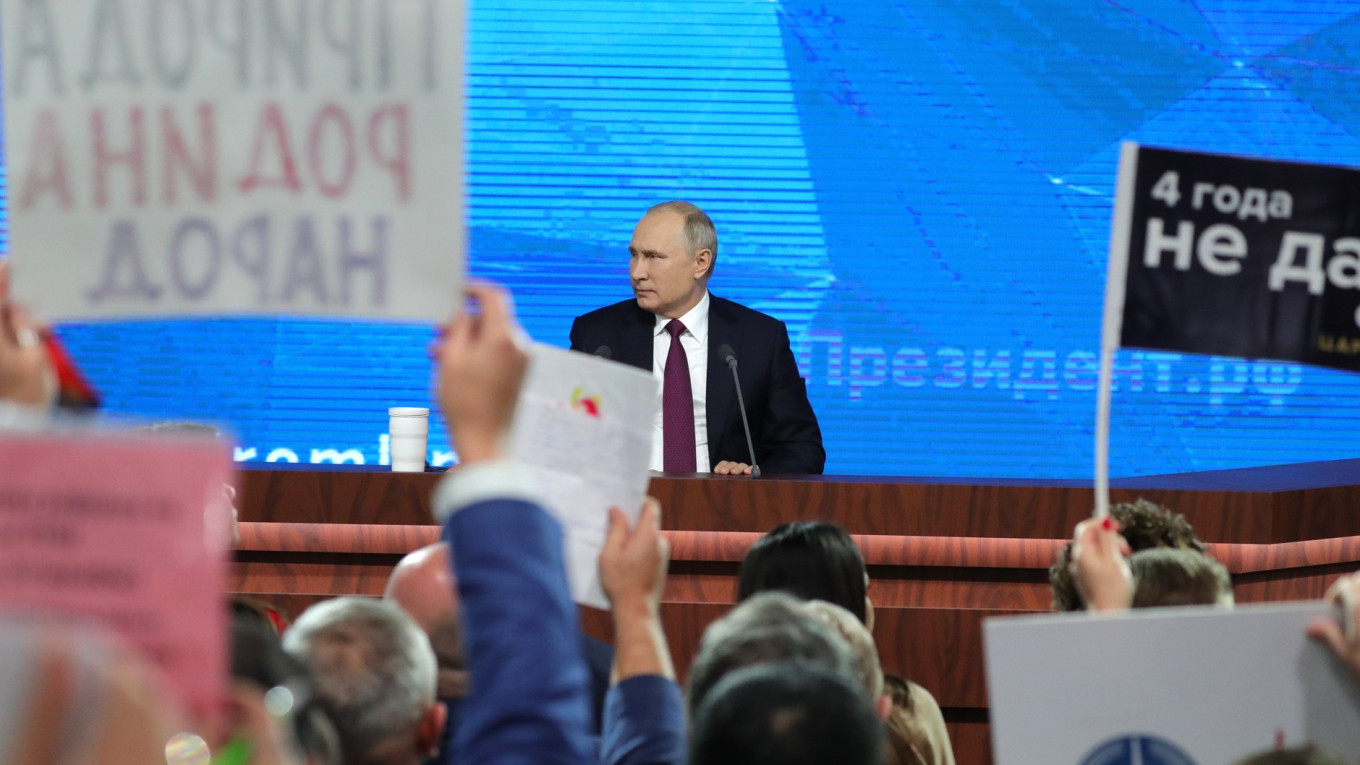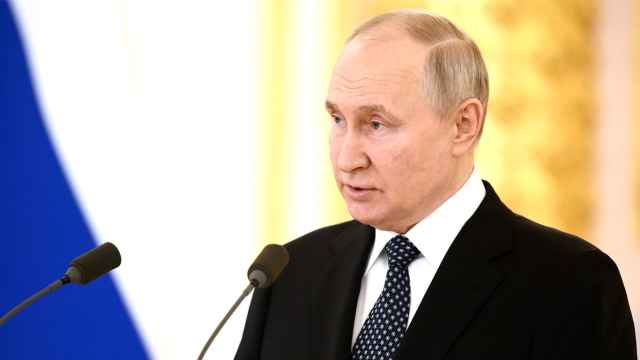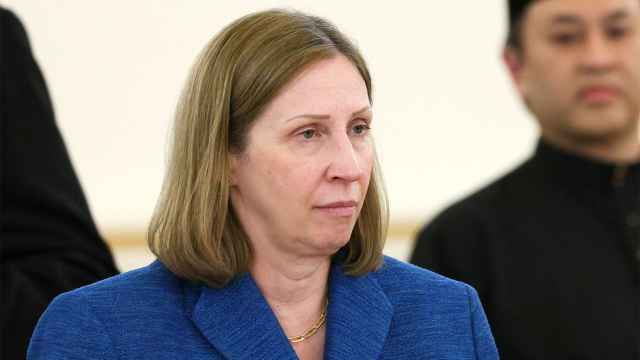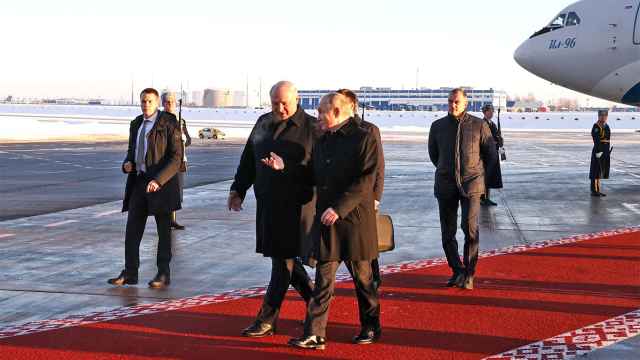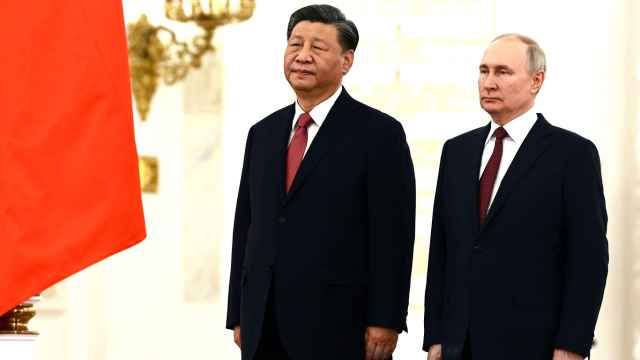Any thought that Russia is simply a top-down authoritarianism, shaped by a brooding president’s masterplan, should be dispelled by the upsurge in open and indirect debates currently taking place in the higher echelons of the country’s elite. They demonstrate three things: that there are real differences in opinion, that this is a system where policy emerges from competitive lobbying, and that Vladimir Putin seems unwilling or unable to resolve the main issues of the day. Put together, they demonstrate the increasing dysfunctionality of "late Putinism."
Much of the debate is, after all, openly or implicitly about 2024, when Putin’s — constitutionally — last term of office is meant to end, and the whole debate as to his future and his system’s. Will he step down in favor of a successor, carve out a new position for himself, rewrite the rules to stay in power? Until that issue is resolved, no long-term political strategy can be elaborated, leaving the stakeholders and political technologists relying on tactical gambits and pitching their own favored solutions in the hope one gets the boss’s approval.
Back in July, Vyacheslav Volodin, formerly Putin’s political fixer in the Presidential Administration and now speaker of the State Duma, began the campaign in earnest by proposing that parliament’s powers be expanded and with them those of the prime minister, making another "castling" like the 2008-12 Medvedev/Putin job-swap conceivable. Of course, that in the process Volodin’s own position would be strengthened was hardly incidental.
Putinism without Putin
This year has, after all, seen debate on Putin’s future, and even a post-Putin Russia, rapidly switch from being unthinkable — or at least unmentionable — to becoming a central fascination for the Muscovite political class. In many ways it was another of the president’s former political managers, Vladislav Surkov, who signaled this shift back in February. A fanciful pseudo-philosophical rumination on "Putin’s Long State," that suggested the present system could last for the rest of the century, actually implicitly brought to the fore the notion that Putinism did not necessarily need Putin.
Increasingly, a consensus seems to be emerging that whoever replaces Dmitry Medvedev as prime minister would be considered the heir apparent. It doesn’t seem to matter that the loyal Medvedev has been written off time and time before, that there are no signs Putin is sharpening his axe, and that in any case it is unlikely the president would want a successor with a strong power base of his own. This is, rather, one of those debates which acquire their own momentum. The question is whether it can also become a self-fulfilling prophesy.
The race to the (other) White House
Many of the discussions taking place on real policy ought thus also to be considered attempts to strike the right statesmanlike pose or to gather useful allies in some notional future political struggle, assuming that the shortest path to the Kremlin is from the prime minister’s office in the White House on Krasnopresnenskaya Embankment.
Volodin again may have been ahead of the pack when, in March, he used the annual report to the Duma by Minister of Economic Development Maxim Oreshkin as an opportunity publicly to humiliate him. The issue was less likely to be whether or not he was properly prepared to brief what is usually an undemanding legislature so much as Oreshkin’s incautious earlier admission that he felt "the job of president would definitely be interesting." He added that he was "only discussing this in the abstract" but that was enough to be taken as a signal of ambition and intent.
Since then, Oreshkin has tried to regain ground by taking on Elvira Nabiullina, chair of the Central Bank, on economic stimulus and the need to curb credit. While Nabiullina is not as volatile and vengeful an enemy as Volodin, though, no one should underestimate her tenacity.
Likewise, German Gref, president of Sberbank, has taken the daring step of criticizing the flagship National Projects, intended to revolutionize the country’s economy. He portrayed them as essentially money-wasting examples of old-fashioned management, and called instead for new approaches able to deliver better public services with less waste. While in many ways he is echoing criticisms from such figures as Audit Chamber head Alexei Kudrin, the tone and timing of Gref’s unexpectedly sharp comments do suggest he is positioning himself as a get-things-done technocratic alternative to Medvedev.
Nor is he the only technocrat suddenly shedding customary caution. Sergei Chemezov, head of the state technology conglomerate Rostec and a confidant of Putin’s who served with him in East Germany in the 1980s, noted that some kind of constitutional changes could be made – code for finding ways for Putin to stay in power — but combined that with the suggestion that it would be better all round if he left: "Speaking on a human level, it’s hard for him, of course. And he would probably enjoy getting to have a rest. After all, according to the constitution, he cannot go on leading the country anyway."
Real divisions about policy
It would not be fair, though, to dismiss the content of the debates and assume they are all about hopes of elevation. The most effective way to appeal to Putin is, after all, to show you have something substantial to offer.
The Oreshkin-Nabiullina debates over whether it is time to spend more on getting a sluggish economy moving and Gref’s broadside against the National Projects speak to very real policy dilemmas facing the Kremlin. Alexei Kudrin has warned that they will not help the economy grow at the level the Kremlin hopes: he predicts 0.1-0.6% GDP growth compared with the 3% target for 2024. Minister of Finance Anton Siluanov remains a supporter of the National Projects But Oreshkin is going even further in broaching taboo subjects with his willingness to discuss the risk of a credit crisis — and to suggest the bubble may burst in 2021, the year of the next State Duma elections.
Moscow protests and Ukraine
Meanwhile, others are weighing in on a range of other issues. These struggles, rooted in a mix of factional interest and political disagreement, play out in what seem often contradictory policies. This was perhaps most visible during the Moscow protests before the local elections. The initial hard-line approach was pushed by Security Council secretary Nikolai Patrushev and Federal Security Service chief Alexander Bortnikov, who made dark warnings about demonstrations being instigated and managed by foreign agents provocateurs. In this, they were supported by National Guard commander Viktor Zolotov.
To an extent, this reflected their own hawkish mindset — we shouldn’t forget that people like Patrushev seem genuinely to believe what might otherwise seem bizarre conspiracy theory — but also their interests. To justify their roles and budgets and buttress their positions, they need to maintain the sense of constant threat from enemies within.
They managed to wrest control of the agenda at first, bypassing Moscow Mayor Sobyanin and the policy managers in the Presidential Administration, and the result was over 2,000 arrests and viral videos of riot-armored "cosmonauts" beating and arresting peaceful protesters.
This alarmed many within the elite. Some feared a backlash, some did not want to see the security interests ascendant, and others were simply repulsed by the spectacle. Deputy Presidential Administration head Sergei Kirienko, to whose managerial approach this was a challenge, stirred himself to act behind the scenes, but others were willing to indicate their opposition more openly. Chemezov, for example, said that "a sound opposition is in everyone’s benefit" and pro-government media figures such as RT’s Margarita Simonyan came out against the violence. The final unauthorized demonstration passed peacefully.
Even over Ukraine, a close ally of Surkov’s has indicated that there are serious divisions within the government. Surkov the political impresario is increasingly clashing with Deputy Prime Minister Dmitry Kozak, a managerial fixer, who is trying to minimize the cost of the Donbas conflict to Moscow, even at the cost of making a deal with Kiev.
Where’s Putin?
The irony is that while Putin is active internationally and ubiquitous on the state media, the very scale and stridency of current elite debates reflect his political absence.
The system is larger than just one man — but it has also come to depend on him to arbitrate factional disputes, resolve policy debates and set broad objectives. And he’s not doing his job.
The succession question is hardly a new one. Arguably, Medvedev’s presidency was in part an extended job interview, which he failed. Then Putin began looking for candidates within his shrinking circle, which essentially meant his aides and bodyguards. Now he may be looking to the new generation of young technocrats being tracked, trained and tested through the national Leaders of Russia program.
His preference might be to find "his own Putin," a sharp and loyal young successor without a strong powerbase and thus dependent on and grateful to his patron. Or maybe a Kazakhstan-style constitutional realignment. Or, for all anyone knows, a retirement growing roses and reading Pushkin.
But the point is that nobody knows. Nobody knows whether he is fully committed to the National Projects; last year, he pledged an eye-watering 28 trillion rubles to them through 2024, but he has changed policies before. Nobody knows whether, as its brand becomes more toxic, the United Russia political bloc will be displaced as the Kremlin’s "party of power" as others were before it. Nobody knows if he is serious about talks with Ukraine or just going through the motions.
Of course, none of this poses a direct challenge to Putin’s position, and tomorrow he may decide on what to do. But it is a mark of the crisis of late Putinism not only that there are these increasingly bitter struggles over policy and personality, but that so much depends on a man who seems to be running out of ideas and of the will to make decisions on the difficult challenges looming over the country.
This article first appeared in Raam op Rusland.
A Message from The Moscow Times:
Dear readers,
We are facing unprecedented challenges. Russia's Prosecutor General's Office has designated The Moscow Times as an "undesirable" organization, criminalizing our work and putting our staff at risk of prosecution. This follows our earlier unjust labeling as a "foreign agent."
These actions are direct attempts to silence independent journalism in Russia. The authorities claim our work "discredits the decisions of the Russian leadership." We see things differently: we strive to provide accurate, unbiased reporting on Russia.
We, the journalists of The Moscow Times, refuse to be silenced. But to continue our work, we need your help.
Your support, no matter how small, makes a world of difference. If you can, please support us monthly starting from just $2. It's quick to set up, and every contribution makes a significant impact.
By supporting The Moscow Times, you're defending open, independent journalism in the face of repression. Thank you for standing with us.
Remind me later.



